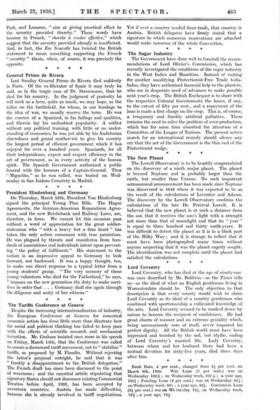The Tariffs Conference at Geneva Despite the increasing internationalization of
industry, the European Conference at Geneva for concerted economic action has done little more than illustrate how far social and political thinking has failed to keep pace with the effects of scientific research and mechanical invention. Mr. Graham insisted once more in his speech on Friday, March 14th, that the Conference was called to ensure a downward tariff movement, not to " stabilize " tariffs, as proposed by M. Flandin. Without rejecting the latter's proposal outright, he said that it was " frankly a disappointment to the British delegation." The French draft has since been discussed to the point of weariness ; and the essential article stipulating that signatory States should not denounce.existing Commercial Treaties before April, 1931, has been accepted by seventeen countries. Austria has made difficulties, because she is already involved in tariff negotiations, Yet if ever a country needed freer trade, that country is Austria. British delegates have firmly stated that a signature to which numerous reservations are attached would make nonsense of the whole Convention.


















































 Previous page
Previous page